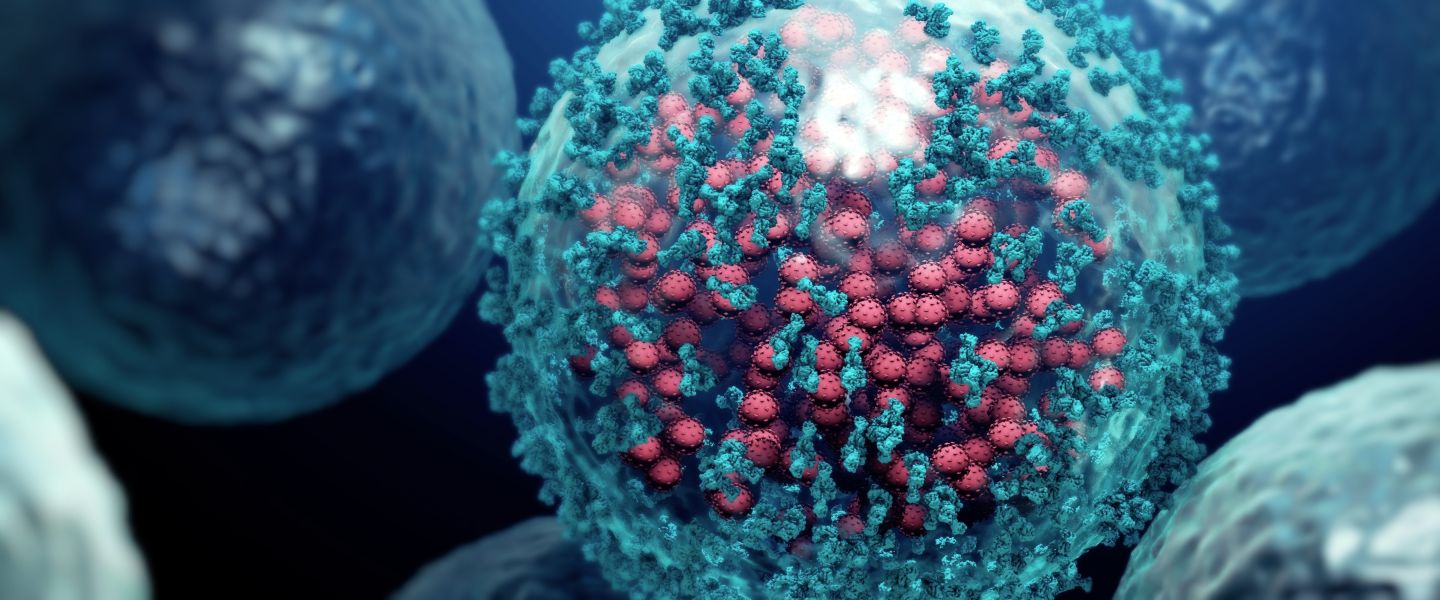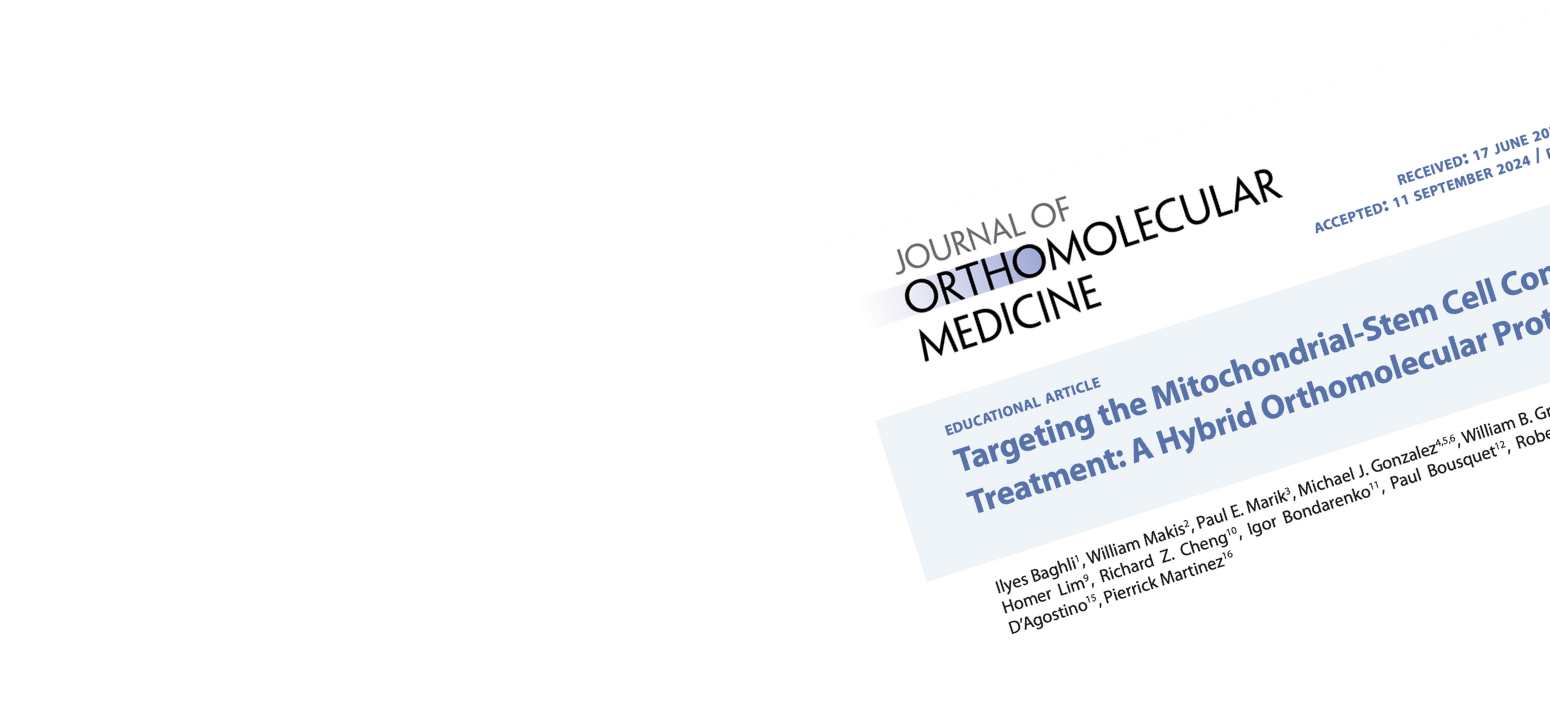SHARING / REPOSTING GUIDELINES: We're very happy to have posts/articles shared as direct links.
However, if you are replicating and re-posting information from this website or our posts, Abbey requests that you:
A) Only ever share articles in part (not in full). (eg. You can lift a paragraph as a way of introducing your readers to the topic) B) Be sure to always provide a direct link/URL back to the full original article here on the MyHealingCommunity.com website. Thanks in advance for your co-operation when sharing and re-posting any and all information that appears on this website.
Turbo Cancers: Understanding the Molecular Mechanisms and Implications for Cancer Patients
Recent research has shed light on the molecular biology behind "turbo cancers," also known as hyper-progressive disease in medical terminology. This information is crucial for cancer patients to understand and potentially act upon.
The study "Class switch towards spike protein-specific IgG4 antibodies after repeated SARS-CoV-2 mRNA vaccination" published in Nature Scientific Reports provides strong evidence for this connection.
https://www.nature.com/articles/s41598-023-40103-x
Key points include:
- The study found that individuals who received mRNA vaccines against SARS-CoV-2 showed a significant increase in spike protein-specific IgG4 antibodies, especially after booster doses.
- This IgG4 class switch was observed primarily in individuals who received mRNA vaccines, but not in those who had been infected with SARS-CoV-2 before vaccination or those who received vector-based vaccines.
- The percentage of spike-specific IgG4 relative to total spike-specific IgG increased over time, becoming similar to IgG1 levels in some cases.
- This phenomenon appears to be unique to mRNA vaccines, as it was not observed with other vaccine types or natural infection.
- The study suggests that the mRNA vaccine used for priming immunization is crucial in the emergence of high IgG4 subclass distribution in the secondary immune response.
- The authors note that while IgG4 has immunosuppressive properties, which can be beneficial in allergic diseases, it may indicate impaired humoral immunity in the context of tumors. Impaired humoral immunity in the context of tumors refers to a weakened antibody-mediated immune response against cancer cells. Normally, the humoral immune system produces antibodies to target and help eliminate foreign or abnormal cells, including cancer cells. In some cancer cases, this system becomes compromised or "impaired," meaning it doesn't function as effectively as it should.
This impairment can occur through various mechanisms, including:
- Production of less effective antibody types (like IgG4 instead of IgG1)
- Reduced ability of antibodies to activate immune cells against tumors
- Cancer cells evading antibody recognition
As a result, the body's ability to fight cancer using antibodies is reduced, potentially allowing tumors to grow and spread more easily.
In the context of elevated IgG4 levels, these antibodies may interfere with other antibodies' normal anti-tumour functions, further impairing the immune response against cancer.
This impairment of humoral immunity is one of the ways cancers can evade the body's natural defence mechanisms.
You can read the peer-reviewed study that provides a scientifically rigorous explanation of the link between mRNA vaccines and IgG4 antibody production, confirming the connection here: Class switch towards spike protein-specific IgG4 antibodies after repeated SARS-CoV-2 mRNA vaccination" published in Nature Scientific Reports https://www.nature.com/articles/s41598-023-40103-x
More on the ‘Critical Components of Turbo Cancer Development’
This YouTube lecture discusses the molecular biology behind 'turbocancers', also known as hyper-progressive cancers in medical terminology. The critical components involved are IgG4 antibodies, glutathione, and genetic predispositions. IgG4 antibodies can create a tumor-friendly environment by transforming immune cells and interfering with other antibodies used for cancer treatment. Glutathione, typically a beneficial antioxidant, can be exploited by cancer cells to protect themselves and enhance the effects of IgG4 antibodies. Elevated IgG4 levels and increased glutathione in the tumour microenvironment can lead to rapid cancer growth.
The lecturer suggests that individuals who have received mRNA vaccines should monitor their IgG4 antibody levels and discuss any abnormalities with their doctors. This is because mRNA vaccines have been shown to induce higher levels of IgG4 antibodies targeting the spike protein. Cancer patients with elevated IgG4 levels should consider screening for genetic predispositions related to glutathione metabolism. The genetic mutations involved (such as KRAS, EGFR, SKI1, MDM2, and MDM4) appear to be related to glutathione production or metabolism. The lecture also mentions ongoing research to develop medications that can overcome the negative effects of IgG4 and glutathione in cancer microenvironments.
Watch it here: Raszek, M. (2024, February 5). Turbo Cancers Part 3: Glutathione and NAC (update #146) [Video]. YouTube. https://www.youtube.com/watch?v=YVI2S4DVo6A
Key Messages:
IgG4 antibodies are crucial in promoting a tumor-friendly environment. As discussed above these anto-bodies have the ability to alter immune cells, such as macrophages, in a way that reduces their effectiveness in combating cancer. Additionally, they can disrupt the function of other antibodies utilised in cancer treatment and conceal cancer cells from being recognised by the immune system.
It's also crucial in the context of IgG4 antibodies to consider that glutathione protects cancer cells from reactive oxygen species and enhances the effects of IgG4 antibodies in promoting tumour growth. Certain genetic predispositions, such as mutations in genes responsible for glutathione production or metabolism (e.g., KRAS, EGFR, SKI1, MDM2, MDM4), can elevate the likelihood of developing aggressive forms of cancer [1]. I unpack more regarding which cancer types have shown higher glutathione levels below.
Take Action:
Monitor IgG4 Levels: If you've received mRNA vaccines, consider regularly monitoring your IgG4 antibody levels. Discuss any abnormalities with your doctor[1].
Genetic Screening: If you have cancer and elevated IgG4 levels, consider screening for genetic predispositions related to glutathione metabolism[1].
Treatment Implications: Some cancer treatments using IgG4-based antibodies (like Nivolumab/Opdivo) might potentially contribute to turbo-cancer development in certain patients. Discuss the risks and benefits with your oncologist[1].
Potential Future Treatments: Research is ongoing to develop medications that can overcome the adverse effects of IgG4 antibodies and glutathione in cancer microenvironments. Stay informed about new treatment options. https://www.youtube.com/watch?v=YVI2S4DVo6A
Holistic Approach: Maintaining a balanced approach to antioxidants like glutathione and supplementing with NAC while managing cancer. They generally benefit health but may have complex interactions with many cancer types and the IgG4 antibodies seen in post-mRNA vaccine oncology situations [1]. See my previous blog post on Liposomal Piperlongumine and its capacity to lower glutathione levels: https://myhealingcommunity.com/piperlongumine-inhibits-antioxidants/
Discuss IgG4 testing with your healthcare provider, especially if you've received mRNA vaccines. Generally, an IgG4 level above 135-201 mg/dL would be considered elevated. It is always best to refer to the reference range provided with the test results, as different labs use different methods.
Consider genetic testing for glutathione-related mutations if you have elevated IgG4 levels. The key mutations that cancer patients with elevated IgG4 levels should consider screening for, particularly those that may indicate higher glutathione levels in the tumour microenvironment (TME):
- KEAP1 mutations: KEAP1 is a negative regulator of NRF2, a transcription factor that controls glutathione synthesis. Mutations in KEAP1 can lead to constitutive activation of NRF2 and increased glutathione production.
- NRF2 (NFE2L2) mutations: Activating mutations in NRF2 can lead to increased glutathione synthesis and elevated antioxidant responses.
- KRAS mutations: These have been associated with altered glutathione metabolism and potentially increased levels in the TME.
- EGFR mutations: Like KRAS, EGFR mutations have been linked to changes in glutathione metabolism.
- SKI1 mutations: This gene has been mentioned in the context of glutathione-related genetic predispositions for turbo cancers.
- MDM2 and MDM4 mutations: These genes have also been associated with glutathione metabolism alterations in cancer.
- GSS (Glutathione Synthetase) mutations: While typically associated with glutathione deficiency, certain mutations might increase activity.
- GCLC and GCLM mutations: These genes encode subunits of glutamate-cysteine ligase, a key enzyme in glutathione synthesis. Activating mutations could increase glutathione production.
- SLC7A11 (xCT) mutations: This gene encodes a cystine/glutamate antiporter. Increased expression or activating mutations could lead to more glutathione synthesis.
- GPX1-8 mutations: Glutathione peroxidase genes, where specific mutations might affect glutathione utilisation and levels.
When screening for these mutations, oncologists and patients should look for:
- Activating gene mutations that promote glutathione synthesis (e.g., NRF2, GCLC, GCLM).
- Inactivating mutations in negative regulators of glutathione synthesis (e.g., KEAP1).
- Mutations that lead to increased expression of glutathione-related enzymes.
- Copy number variations that might amplify genes involved in glutathione metabolism.
It's important to note that these mutations don't guarantee higher glutathione levels in the tumour microenvironment (TME) but can indicate an increased likelihood. Additionally, comprehensive genetic profiling and metabolomic analysis of tumour samples would provide the most accurate assessment of glutathione levels and related metabolic changes in the TME. For cancer patients, it's crucial to work with an oncologist or genetic counsellor to determine the most appropriate testing approach.
Citations and Further Reading:
[2] Role of Glutathione in Cancer: From Mechanisms to Therapies - PMC
[3] Glutathione metabolism in cancer progression and treatment resistance - PMC
[5] Targeting Glutathione Metabolism: Partner in Crime in Anticancer Therapy
[7] Glutathione: Lights and Shadows in Cancer Patients
Discuss any concerns about your current treatment plan with your oncologist, mainly if it involves IgG4-based medications. Cancer patients should be aware of and discuss the following types of IgG4-based medications with their oncologists:
- Nivolumab: This is an IgG4-based immune checkpoint inhibitor used to treat various cancers. The studies mentioned that nivolumab, an IgG4 antibody, could potentially promote cancer growth in some cases due to its IgG4 nature.
- Other PD-1 inhibitors: While not all PD-1 inhibitors are IgG4-based, some may be. Patients should discuss the specific type of PD-1 inhibitor they are receiving with their oncologist.
- Combination immunotherapies: The research suggests that combining IgG4-based antibodies with other immunotherapies might increase some patients' hyperprogressive disease risk.
- Any IgG4-based monoclonal antibodies: Beyond nivolumab, patients should ask their oncologists if any of their prescribed medications are IgG4-based monoclonal antibodies.
- Medications that might affect glutathione levels: While not IgG4-based, medications that could potentially increase glutathione levels in the tumour microenvironment interact with IgG4 antibodies to promote tumour growth.See my previous blog post on Liposomal Piperlongumine and it’s capacity to lower glutathione levels https://myhealingcommunity.com/piperlongumine-inhibits-antioxidants/
Several specific cancer types have been associated with IgG4 levels and related mechanisms:
- Lung Cancer: This was one of the primary cancer types where "turbo cancers" or hyperprogressive disease was initially observed, especially concerning specific immunotherapy treatments[1].
- Esophageal Cancer: The researchers transplanted esophageal cancer cell lines into mice and observed increased levels of IgG4 antibodies in the tumor microenvironment[1].
- Colon Cancer: Similar to esophageal cancer, colon cancer cell lines were studied, though the increase in IgG4 levels was not as pronounced as in other cancer types[1].
- Pancreatic Cancer: Patients with IgG4-related disease (IgG4-RD) appear to have a higher risk of pancreatic cancer compared to the general population[5].
- Lymphoma: There is an increased risk of lymphoma in patients with IgG4-RD[5].
- Melanoma: An inverse correlation was observed between the relative abundance of IgG4 (over total IgG) in the serum of melanoma patients and survival[3].
- Various solid tumours: Elevated glutathione (GSH) levels, which interact with IgG4 in the proposed mechanism, have been associated with tumour progression and increased resistance to chemotherapeutic drugs in various solid tumours [4][8].
It's important to note that while these cancer types have been associated with IgG4 levels or related mechanisms, the relationship is complex and not fully understood. The "turbo cancer" mechanism involving IgG4 and glutathione appears to be a more general process that could potentially affect multiple cancer types, especially in individuals with certain genetic predispositions. IgG4-related disease itself has been associated with an increased overall cancer risk[5], suggesting that elevated IgG4 levels may play a role in various cancer types beyond those specifically mentioned in these studies.
Citations and Further Reading:
[1]Class switch towards spike protein-specific IgG4 antibodies after repeated SARS-CoV-2 mRNA vaccination" published in Nature Scientific Reports provides strong evidence for this connection. https://www.nature.com/articles/s41598-023-40103-x
[2] https://www.ncbi.nlm.nih.gov/pmc/articles/PMC7080711/
[3] https://www.ncbi.nlm.nih.gov/pmc/articles/PMC3782134/
[4] https://www.ncbi.nlm.nih.gov/pmc/articles/PMC7600400/
[5] https://arthritis-research.biomedcentral.com/articles/10.1186/s13075-021-02652-2
[6] https://haematologica.org/article/view/8802
[7] https://www.ncbi.nlm.nih.gov/pmc/articles/PMC4705142/
[8] https://www.ncbi.nlm.nih.gov/pmc/articles/PMC3673338/
[9] https://www.mdpi.com/2227-9059/11/8/2226
[10] https://jitc.bmj.com/content/8/2/e000661
Critical points for patients to discuss with their oncologists:
- Whether any of their current or proposed medications are IgG4-based.
- These medications have potential risks and benefits in their specific case.
- Alternative treatment options that use IgG1-based antibodies or other frameworks instead of IgG4.
- There is a need to monitor IgG4 levels and glutathione-related genetic markers.
- Potential strategies to mitigate risks if IgG4-based medications are deemed necessary.
It's important to note that while these concerns exist, IgG4-based medications like Nivolumab have shown significant benefits for many cancer patients. The decision to use these medications should be made on a case-by-case basis, weighing each patient's potential risks and benefits.
Keep an eye on emerging research and treatment options related to turbo cancers.
https://www.youtube.com/watch?v=YVI2S4DVo6A
Use this search in Pubmed and additionally you can enter in your cancer type: https://pubmed.ncbi.nlm.nih.gov/?term=+hyper-progressive+cancer
Remember, this information is meant to empower you to have informed discussions with your healthcare team. Every cancer case is unique, and decisions should be made in consultation with medical professionals who understand your unique situation.
Elevated Glutathione (GSH) Levels
Several types of cancer have been associated with elevated glutathione (GSH) levels in the tumour itself and/or the tumour microenvironment (TME):
- Esophageal cancer
- Lung cancer
- Colon cancer
- Breast cancer
- Ovarian cancer
- Head and neck cancers
- Pancreatic cancer
- Melanoma
- Leukemias
- Liver cancer
Elevated GSH levels appear to play a role in tumour progression, metastasis, and chemotherapy resistance in many of these cancer types. However, the exact mechanisms and implications can vary between different cancers.
Citations and further reading:
Role of Glutathione in Cancer: From Mechanisms to Therapies - PMC
Glutathione: Lights and Shadows in Cancer Patients - PMC
The Effectiveness of Glutathione Redox Status as a Possible Tumor Marker in Colorectal Cancer
Role of Glutathione in Cancer Progression and Chemoresistance - PMC
Liposomal Piperlongumine Lowers Glutathione Levels.
Liposomal piperlongumine shows promise for potentially enhancing the effectiveness of current cancer treatments in several ways:
Increasing sensitivity to radiation therapy via increasing ROS: Piperlongumine has been shown to increase the sensitivity of colorectal cancer cells to radiation therapy by inhibiting glutathione and increasing reactive oxygen species (ROS) production[5].
Overcoming drug resistance via boosting oxidative stress: Studies have demonstrated that piperlongumine can help overcome resistance to temozolomide chemoradiotherapy in glioblastoma by boosting oxidative stress and inflammation[7]. This indicates potential for combating treatment resistance in aggressive cancers.
Synergistic effects with other therapies: Combination treatment of piperlongumine with HSP90 inhibitors showed strong synergistic interaction in colon cancer cells[6]. This suggests that piperlongumine may enhance the effectiveness of specific targeted therapies.
Immunomodulatory effects: Piperlongumine has been shown to act as an immunosuppressant by increasing cellular ROS levels[2]. If timing is not considered, this could interfere with some immunotherapies. You must discuss the use of piperlongumine with your oncologist.
Improved drug delivery: Liposomal formulations of piperlongumine have been explored to enhance its therapeutic efficacy for cancer treatment[3]. Liposomal delivery could improve bioavailability and targeting of piperlongumine to tumour sites. The trusted source of Liposomal Pro Piperlongumine is linked here. Use code abbey5 for 5% off.
Anti-proliferative activity: Piperlongumine has demonstrated anti-proliferative effects against various cancer cell types, including retinoblastoma cells[8]. This broad anti-cancer activity could complement other treatments.
Modulation of oxidative stress: By inhibiting glutathione and increasing ROS production, piperlongumine may help create a more hostile environment for cancer cells, potentially making them more susceptible to other treatments[4][5].
It's important to note that while these studies show promise, most of this research is still in the preclinical stage. The specific interactions between piperlongumine and various cancer therapies, especially in the context of different cancer types and genetic profiles, must be carefully studied to determine optimal treatment combinations and protocols.
Citations for Piperlongumine and Further Reading:
[1] Piperlongumine generates ROS to assist the kill phase of cancer treatments
[3] The promising potential of piperlongumine as an emerging therapeutics for cancer - PMC
IgG4 class Switching Inhibition
To reduce the likelihood of IgG4 class switching in this context, natural compounds that can modulate the immune response, particularly those that can influence T helper cell differentiation and cytokine production, have been identified.
The key mechanisms of action (MOA) we each need to be looking for include:
- Inhibition of Th2 responses: IgG4 class switching is associated with Th2-type immune responses, so compounds that suppress Th2 differentiation or function could be beneficial.
- Reduction of IL-4 and IL-13 production: These cytokines are crucial for IgG4 class switching.
- Inhibition of IL-10 production: IL-10 is another cytokine promoting IgG4 responses.
- Modulation of regulatory T cells (Tregs): Tregs play a role in IgG4 production.
- Inhibition of STAT6 signalling: This pathway is important for IgG4 class switching.
A few natural compounds that might help reduce IgG4 class switching based on these mechanisms include:
Curcumin: Has anti-inflammatory properties and can modulate Th1/Th2 balance.
Summary: This study published in Nature's Acta Pharmacologica Sinica journal provides strong evidence for curcumin's ability to modulate the Th1/Th2 balance and its anti-inflammatory properties. The research demonstrates that curcumin treatment in a mouse model of colitis decreased the expression of Th1 cytokines (such as IL-12 and IFN-γ) while increasing the expression of Th2 cytokines (such as IL-4 and IL-10). This shift from a Th1-dominant to a Th2-dominant immune profile is a key mechanism by which curcumin exerts its anti-inflammatory effects in inflammatory conditions. The study provides robust scientific support for curcumin's immunomodulatory capabilities and its potential therapeutic use in inflammatory diseases.
Trusted Bioavailable Pure Source: https://www.mcsformulas.com/vitamins-supplements/curcumin-c3-liposomal/ref/14
Resveratrol: Can suppress Th2 responses and modulate cytokine production.
Link: Influence of Resveratrol on the Immune Response - PMC
Summary: This review discusses how resveratrol, a polyphenolic compound found in various plants, regulates immunity by interfering with immune cell regulation and cytokine synthesis. It highlights resveratrol's ability to modulate the immune response, including its impact on Th1 and Th2 cells, which are crucial for balancing immune reactions. The review provides evidence of resveratrol's role in reducing pro-inflammatory cytokines and influencing gene expression, making it a potential therapeutic agent for managing inflammatory and autoimmune diseases.
Trusted Bioavailable Pure Source: https://www.mcsformulas.com/vitamins-supplements/trans-resveratrol-liposomal/ref/14
Epigallocatechin gallate (EGCG) from green tea: Has immunomodulatory effects and can influence T cell differentiation.
Article Summary: EGCG. It can inhibit the differentiation of T cells into immunosuppressive regulatory T cells (Tregs) in the tumour microenvironment. This is significant because Tregs are associated with increased IgG4 production in some contexts. It enhances the anti-tumour activity of effector T cells and natural killer (NK) cells, potentially counteracting the immunosuppressive effects associated with elevated IgG4 levels in some cancers. And EGCG modulates various signalling pathways involved in immune regulation, including NF-κB and STAT3, which could indirectly influence IgG4-related mechanisms in the tumour microenvironment.
EGCG's ability to alter the balance of pro- and anti-inflammatory cytokines in the tumour microenvironment may affect the conditions that promote IgG4 class switching.
EGCG has been shown to lower glutathione levels in cancer cells in higher doses. This is significant because elevated glutathione in the tumour microenvironment can contribute to developing "turbo cancers" when combined with high IgG4 levels.
While this study doesn't directly examine EGCG's effects on IgG4 levels in cancer, its findings on EGCG's broad immunomodulatory properties and its ability to lower glutathione levels suggest potential relevance to IgG4-related mechanisms in cancer contexts. Further research targeting EGCG's effects on IgG4 in cancer would be needed to draw more direct conclusions.
Trusted bioavailable pure source of these helpful compounds: https://www.mcsformulas.com/vitamins-supplements/egcg/ref/14
When you use the study group discount code abbey5, you are contributing to making research deep dives like this one possible, the My Healing Community website and all its resources available, and the admin of the study support group possible. I appreciate any return support you can provide.
Emodin, a bioactive compound derived from Chinese rhubarb (Rheum officinale), has diverse pharmacological properties, including its potential role in modulating immune responses. Emodin has shown promise in inhibiting Interleukin-4 (IL-4) and Interleukin-13 (IL-13), potentially offering protection against IgG4 class switching and elevation. By targeting IL-4 and IL-13, Emodin indirectly addresses STAT6 activation, a key driver of IgG4 production[2].
However, it's crucial to approach Emodin's use cautiously, especially in cancer immunotherapy contexts. While severe side effects from immunotherapy often stem from immune system overactivation (e.g., cytokine release syndrome), using immunosuppressive compounds like Emodin to counter the storm requires careful consideration. The potential benefits must be weighed against the risk of suppressing desired anti-tumour immunity, particularly in terms of timing and duration of use[1].
Reducing IL-4 and IL-13 production could benefit cancer patients with elevated IgG4 antibodies, as these elevated levels have been implicated in tumour progression and immune evasion. Emodin's ability to modulate these cytokines may help control the tumour microenvironment in the short term. However, it's imperative that the medical team is informed and closely monitors any use of Emodin, especially if a patient decides to use it to mitigate a cytokine storm.
While Emodin presents a promising avenue for modulating immune responses in cancer patients with elevated IgG4 antibodies, its application must be handled carefully. The goal is to achieve a balanced immune response without dampening anti-tumour immunity for too long or at inappropriate times. This delicate balance underscores the importance of personalised medicine approaches in cancer treatment, where interventions are tailored to individual patient profiles and closely monitored for efficacy and safety.
Emodin Citations:
[4] The Health Benefits of Emodin, a Natural Anthraquinone Derived from Rhubarb—A Summary Update - PMC
[7] Tuning the Cytokine Responses: An Update on Interleukin (IL)-4 and IL-13 Receptor Complexes[8] Effects of an anthraquinone derivative from Rheum officinale Baill, emodin, on airway responses in a murine model of asthma - ScienceDirect
It's important to note that while these compounds show promise in modulating immune responses, their specific effects on IgG4 class switching in the context of mRNA vaccines or cancer have not been extensively studied. Additionally, any supplements or natural compounds should be discussed with your oncologist, especially regarding cancer treatment post-vaccination.
Citations and Further Reading:
[3] The unique properties of IgG4 and its roles in health and disease - PMC
[6] The unique properties of IgG4 and its roles in health and disease | Nature Reviews Immunology
[7] Fc–Fc interactions and immune inhibitory effects of IgG4: implications for anti-PD-1 immunotherapies
© Abbey Mitchell 2024
Abbey is the admin and founder of The Healing Cancer Study Support Group, www.myhealingcommunity.com, where this research deep-dive summary was first published on September 2nd, 2024. To support Abbey's free offerings, visit the group's discounts from suppliers page.
DISCLAIMER: Any and all information in this post was gathered from published research in cell lines or animals, or from typical clinical use. It may not be complete, may not have not been verified in humans, and is NOT meant or given as medical advice, but only as a guide to further exploration.







